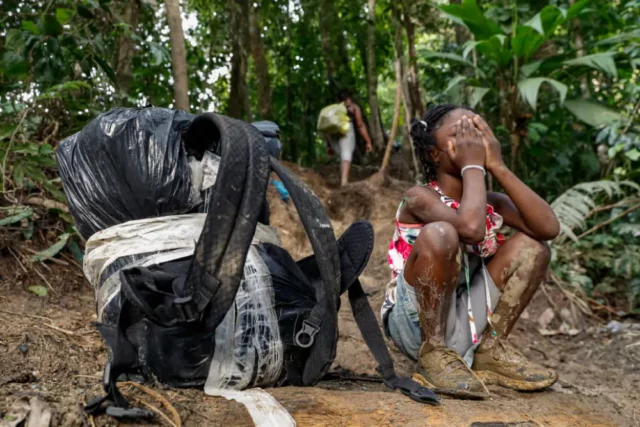The president of Costa Rica, Rodrigo Chaves, arrived in Panama today to hold talks with his host partner, Laurentino Cortizo, with whom he will analyze the crisis of irregular migration.
The visitor was received at the Marcos A. Gelabert Airport, in this capital, by Foreign Minister Janaina Tewaney, and the Costa Rican ambassador to the Isthmus, Ingrid Picado.
To the Darién jungle
According to the agenda, tomorrow he will travel to the Darién jungle to talk with Cortizo about the growing flows of illegal travelers through that National Park – almost 400 thousand people so far this year.
According to the agenda, before leaving for the jungle, Cortizo and Chaves will hold a private meeting and then fly over the points where the daily entry of thousands of migrants from South America is recorded in the border region with Colombia.
This operation will conclude at the Lajas Blancas Immigration Reception Station (ERM), where they will lead the bilateral meeting of their respective cabinets in one of the brigades of the National Border Service (Senafront).
Namely, the delegation of the Isthmus country, chaired by Cortizo, will also be made up of Foreign Minister Tewaney; the Ministers of Security, Juan Manuel Pino; of Government, Roger Tejada; and Environment, Milciades Concepción; as well as the director of the National Immigration Service, Samira Gozaine.Also part of that delegation are the director of Senafront, Jorge Gobea; and the director of the National Aeronaval Service, Eliécer Cárdenas.
For his part, Chaves will also be accompanied by his chancellor, Arnoldo André Tinoco; the head of Security, Mario Zamora; and the Minister of Communication, Jorge Rodríguez, who plan to return to San José the same afternoon this Friday.

Increasing numbers
Official statistics in Panama indicate that, from January to September, heading to the United States, 334 thousand people have passed through the Darién National Park, a good part of them minors, mostly Venezuelans, Ecuadorians and Haitians, although there are also registered citizens of Asian nations.
Recently, Chaves signed a decree that declares the crisis of irregular migration a National Emergency, which allows administrative, operational and economic measures to be taken and to work with more agile procedures to support the work of institutions related to the protection of families that already are found on the borders.
Panama, for its part, launched the campaign “Darién is not a route, it is a jungle” and announced actions such as an increase in deportations, changes in reception stations in indigenous communities and more severe controls at airports and other formal entry routes to the country.
Both leaders are committed to guaranteeing controlled and safe migration, but they require international support and demand shared responsibility between the issuing, transit and destination nations.

